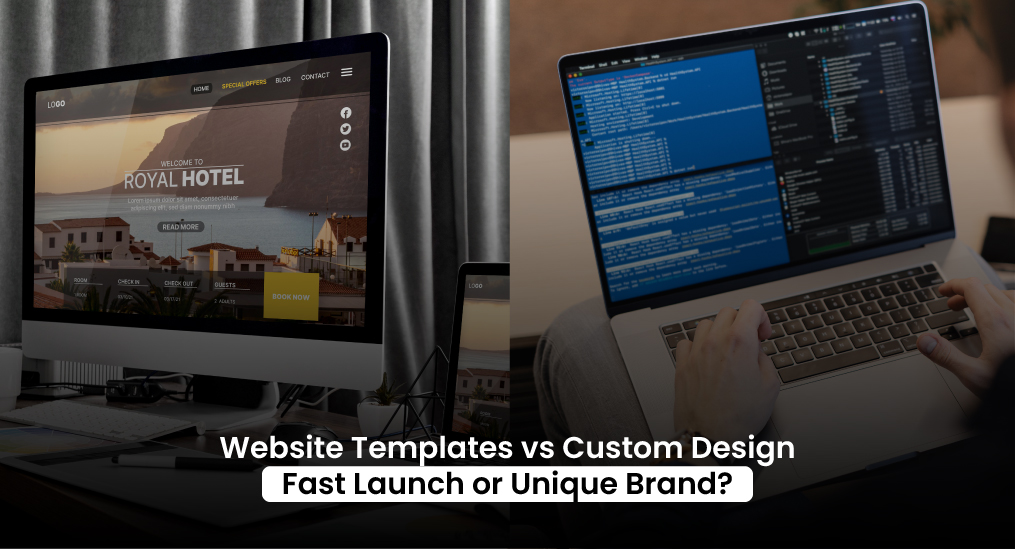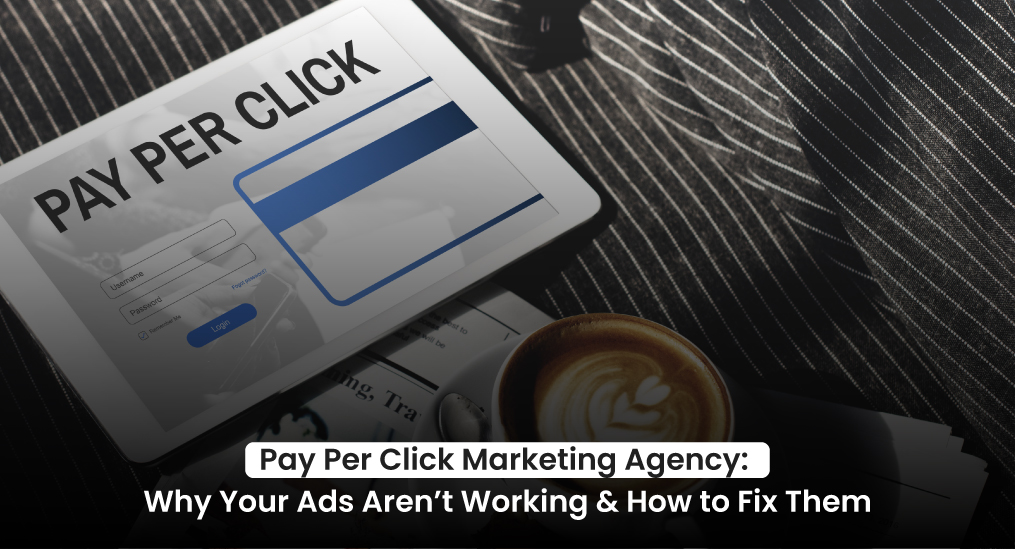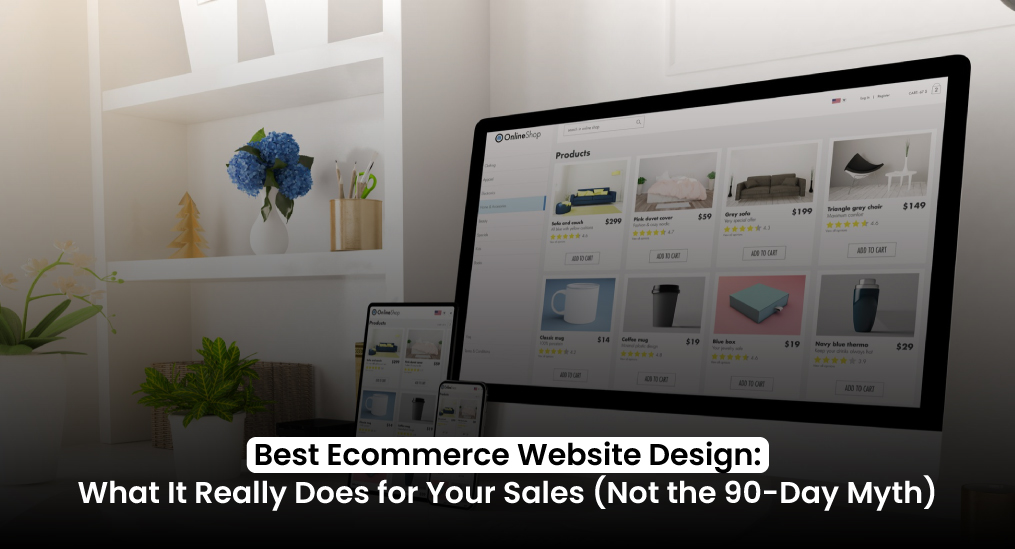Every founder eventually faces the same quiet debate at the start of building a business: do I launch quickly with a pre-built template, or take my time and invest in something that feels truly mine?
On the surface, it looks like a simple question of speed versus originality. But in reality, the choice between website templates vs custom design is a deeper dilemma. It’s about how you see your business, how much you’re willing to invest, and what you want your brand to mean to the people who find you online.
Let’s break it down.
The Allure of Templates: Fast, Familiar, and Affordable
When a founder feels the pressure to get online quickly, templates offer an appealing shortcut. You don’t have to start from a blank canvas, and you don’t need to master design or code on your own. Even with WordPress, you’ll likely hire a web design agency in the USA to set it up properly. They know how to take a template, configure it, and get you live in days rather than months.
That speed matters. A quick launch lets you test your idea in real time. You can put your product in front of real customers, see what resonates, and adjust without waiting for a fully custom build. For many startups, that early feedback can mean the difference between building the wrong thing in isolation or shaping it with actual demand.
Templates also come with built-in advantages. They’ve been used by thousands of businesses before you, which means their structures follow patterns people already know. Visitors don’t have to “figure out” how to use the site. They see the navigation at the top, a hero image that introduces the brand, and a clear button to click when they’re ready. That familiarity lowers the mental effort for someone deciding whether to trust you or buy from you. In the debate of website templates vs custom design, this ease of use is one of the biggest reasons many founders choose templates when launching quickly.
And while templates do carry limitations, platforms like WordPress offer extensions and plugins that help a growing business scale beyond the basics. You can add e-commerce, booking tools, membership features, or marketing integrations. So even if you start simple, you’re not immediately boxed in.
The real question is: how long will a template keep up with your vision before it starts holding you back?
The Limits of Templates
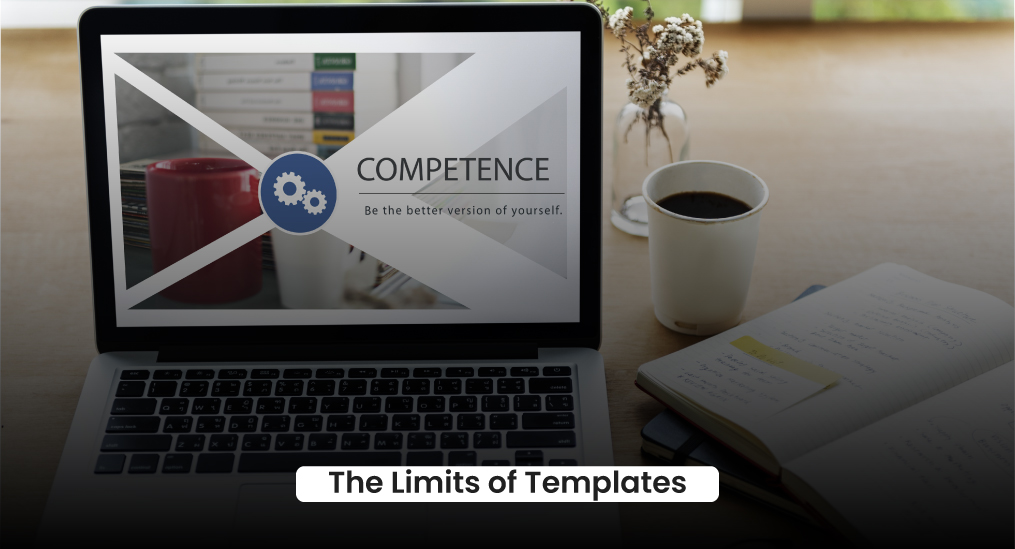
In the beginning, a template feels like it does the job. You get a site that looks professional enough, and it gets you live without weeks of delay. That’s a win. But as you keep growing, little frustrations start piling up.
You notice your site doesn’t stand out. When your competitors use the same popular template, their sites end up looking a lot like yours. For a customer comparing options, that sameness makes it harder to remember who you are or why you’re different.
Then come the technical hurdles. Templates lean heavily on plugins, and while they make it easy to add features, they also put more strain on your site from day one. Load times increase, updates clash, and suddenly you’re reading guides on how to speed up website performance just to keep it running smoothly.
The experience for users can also suffer. With more products or services added, the structure of the template doesn’t always grow with you. Navigation starts to feel messy, too many drop-downs, too many clicks before finding the right page. A clunky checkout means people abandon their carts, and the simple story of your brand gets buried under a design that was never really built for your business in the first place.
That’s the ceiling templates create. They give you a good starting point, but they can’t fully reflect your identity. A scaling business often needs a website that shows its personality, its values, and the way it wants customers to feel, not just a layout anyone can download. This is where the debate of website templates vs custom design becomes critical, as only a tailored approach can truly capture your brand’s uniqueness.
Why Founders Consider Custom Design
Custom website design services come into play when a founder outgrows the “good enough” stage. Templates and platforms like WordPress can take you far, but they work within set boundaries. At some point, those boundaries start to limit how your business is presented. That’s when custom design becomes less about preference and more about necessity.
A custom website design agency in US often steps in when businesses want more control over performance, scalability, and user experience. Instead of adjusting your goals to fit into the framework of a pre-made theme, the site is structured around how your customers actually use it. That can mean faster load times, smoother checkout flows, or a layout that matches how people really make decisions, not just how a template was originally built. This is why many founders evaluating website templates vs custom design eventually lean toward custom solutions as their business grows.
Working with a custom website design company usually feels different from picking a theme and handing it off. These agencies ask hard questions: what emotions should visitors feel on your homepage, where do users lose interest in the buying process, what features will matter when you expand into new markets? This is where phrases like how to optimize UX design stop being buzzwords and start turning into tangible decisions that affect sales and customer trust.
Custom doesn’t mean the site looks fancier for the sake of it. It means the design becomes a business tool. The layout guides visitors naturally toward the next step, the performance keeps them from bouncing, and the overall experience matches the identity you want to build.
Website Templates vs Custom Design: The Cost Question
Of course, custom comes with a price tag. And for founders bootstrapping their way forward, hearing numbers in the thousands can make your stomach sink.
But here’s the nuance: you don’t always need the “perfect” site on day one. Some agencies offer affordable custom website design packages that balance speed and uniqueness. Think of it as a phased approach: start with a core experience, then evolve as your business grows.
In the ongoing debate of website templates vs custom design, cost often becomes the deciding factor. For some, templates provide a budget-friendly launch, while others find that investing in affordable custom website design services pays back in conversions, customer trust, and differentiation. After all, your website is often your first salesperson. And if that salesperson looks generic, you’re already at a disadvantage.
The Benefits of a Simpler Website Design

Some founders think “custom” means complex, but that’s rarely true. In fact, some of the strongest results come from simplicity.
The benefits of a Simpler Website Design are obvious once you see them in action: faster loading, clearer messaging, easier navigation, and a brand experience that feels effortless. Complexity often hides flaws, while simplicity reveals clarity.
If you’re aiming for the best custom website design, it won’t necessarily mean dozens of flashy features. It might mean a site that gets out of the way and lets your product shine.
Website Templates vs Custom Design: Finding the Right Partner
The challenge, then, is choosing who to work with. Not all agencies are built the same. Some focus on startups, others on enterprises. Some lean heavily on aesthetics, while others blend design with deep technical knowledge.
A good custom website design agency will listen as much as they build. They’ll balance strategy with execution. And if you’re a founder in the Northeast, you might even look for a web design company in New Jersey that understands the local market and startup ecosystem.
If you’re more hands-on, you might even study web design for developers to understand what’s possible before hiring anyone. That knowledge helps you avoid overpaying for features you don’t need.
Some agencies offer premium web design services with a focus on flexibility and scalability. Koretechx Kinetic is one example. They design websites that can grow alongside your business, instead of leaving you stuck with something that feels outdated after a year. What matters most is finding a partner who understands your current needs and has the vision to build for the future you’re aiming for.
The Middle Ground: Hybrid Approaches
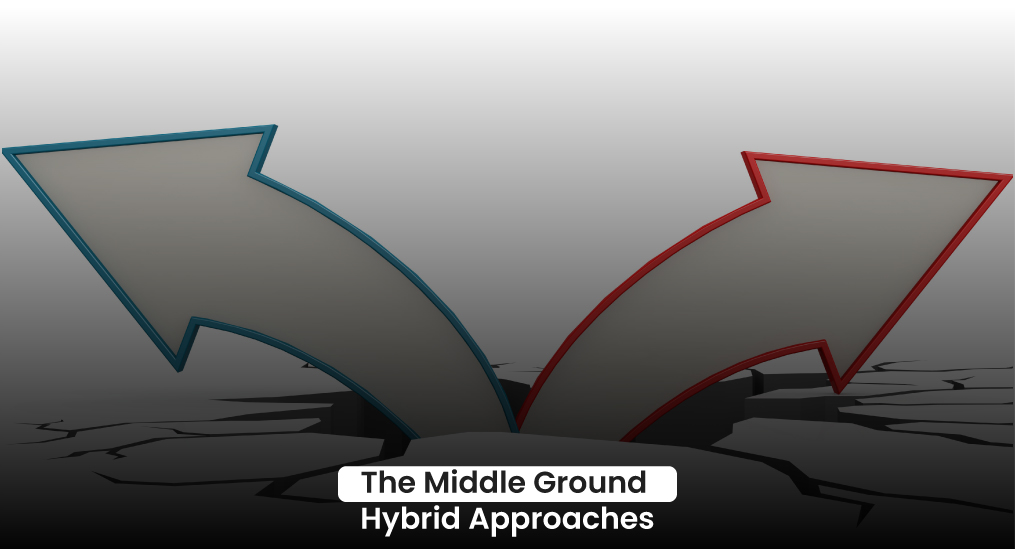
Many founders don’t realize there’s a third option. It doesn’t have to be template or custom. It can be both.
For example, you can start with a template, then hire an agency to layer in custom features that matter most. Maybe it’s your checkout flow. Maybe it’s a content hub for SEO. Maybe it’s visuals tailored to your brand voice.
This hybrid path is often overlooked, but it combines the speed of templates with the uniqueness of custom. It also lets you invest gradually instead of all at once.
So, What’s the Answer?
The real founder’s dilemma, website templates vs custom design, doesn’t have a single right answer. It depends on your stage, your funding, your goals, and your appetite for differentiation.
If your priority is validation, launch fast with a template. If your priority is growth, brand trust, and scalability, lean into custom. If you’re somewhere in between, consider a hybrid approach.
At the end of the day, the decision between website templates vs custom design comes down to your priorities—speed, budget, and the uniqueness of your brand.
The question isn’t just “what can I afford?” It’s “what’s the story I want my website to tell?”

